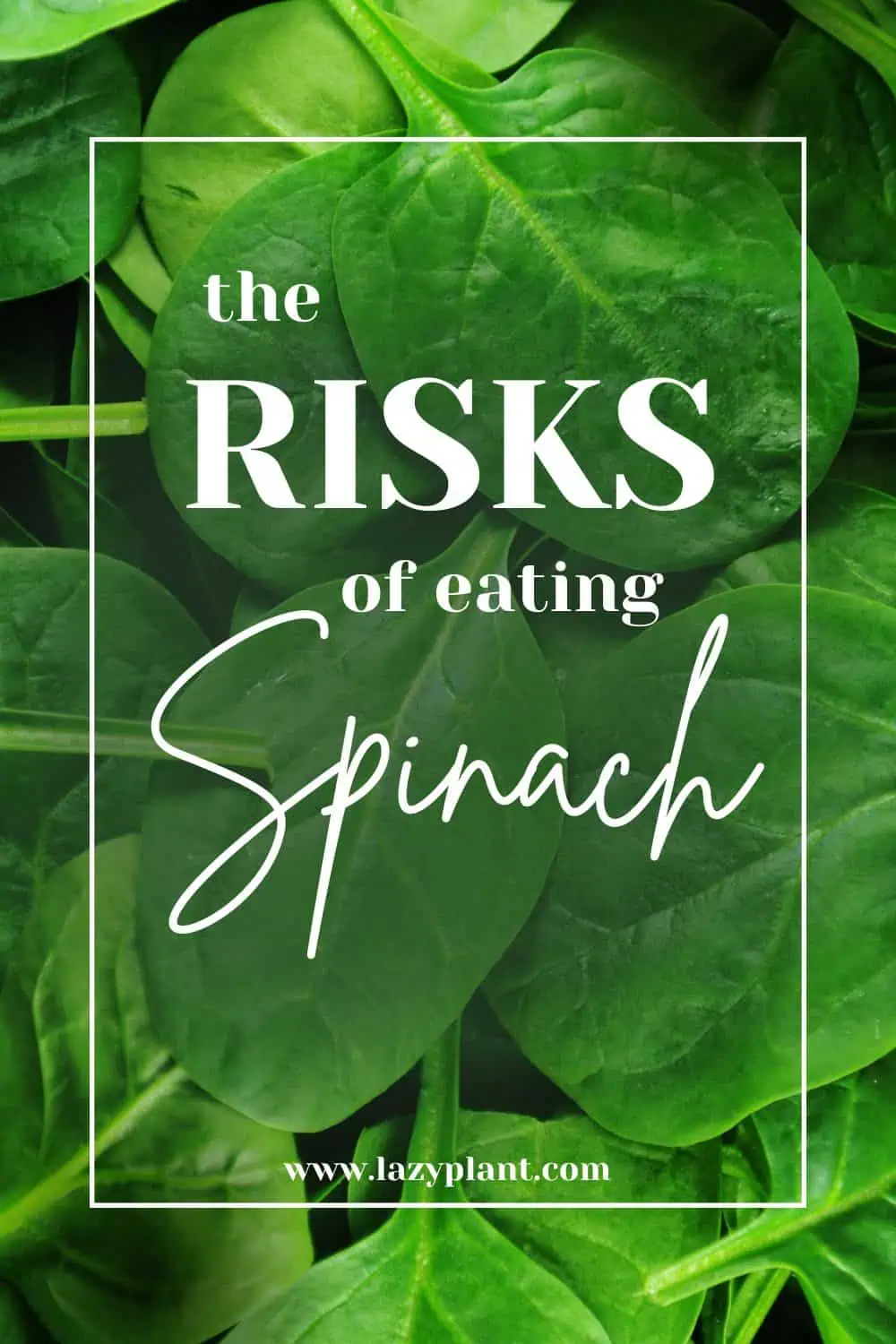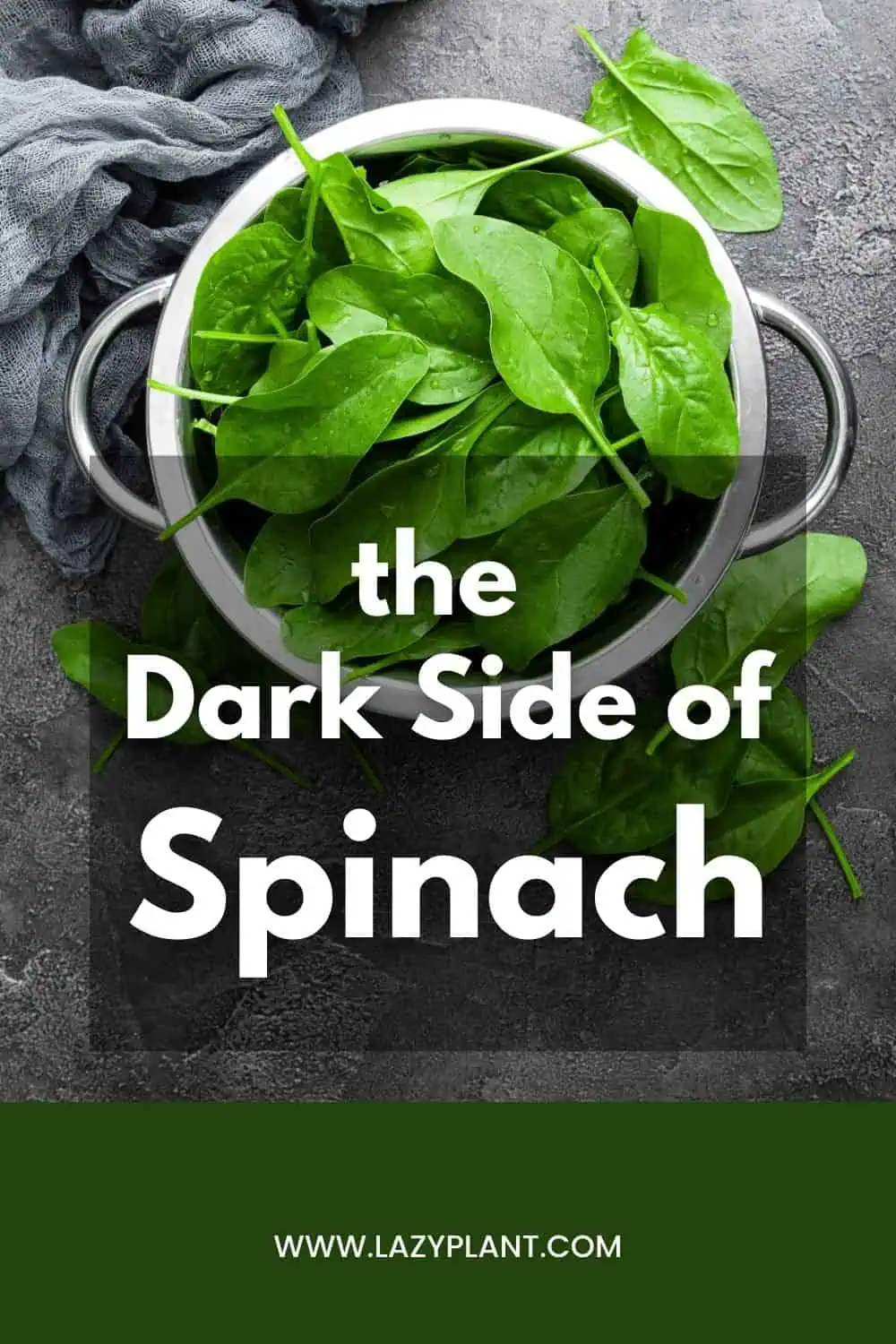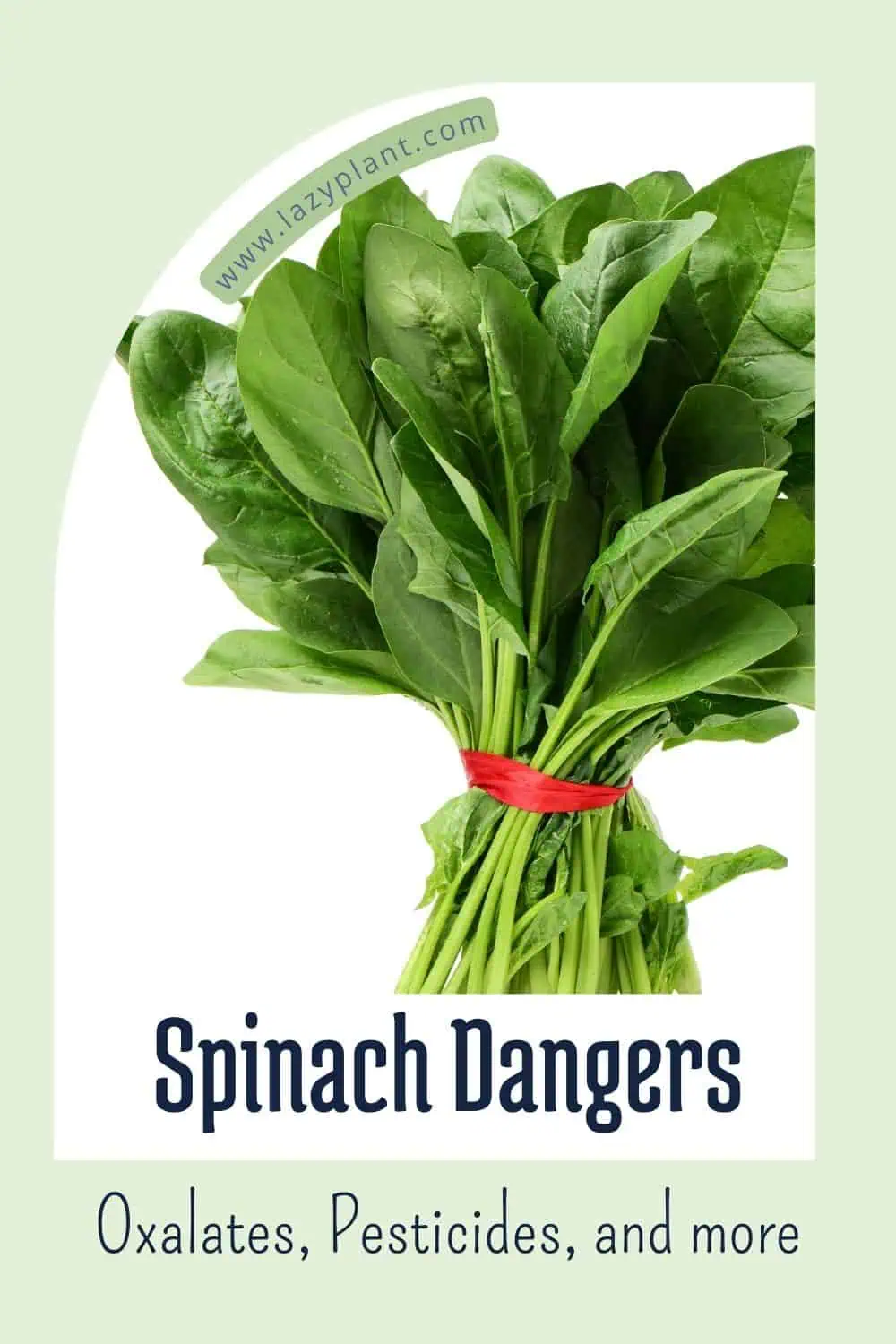Spinach can be a healthy daily addition to your diet when consumed in moderation and in different forms (raw and cooked). It provides essential vitamins, antioxidants, and fiber, but excessive intake can lead to oxalate buildup, mineral absorption issues, digestive discomfort, or medication interactions.
If you have kidney stones, blood clotting disorders, or digestive sensitivity, it’s best to monitor your intake and balance spinach with other leafy greens.
To get the most out of spinach while avoiding side effects, rotate it with other nutrient-rich greens like kale, arugula, Swiss chard, or romaine lettuce and always ensure a varied diet with complementary nutrients.
Table of Contents
History
Spinach (Spinacia oleracea) has a long history of cultivation and consumption, though it is not one of the oldest leafy greens eaten by humans.
Native to ancient Persia (modern-day Iran), spinach was cultivated as early as the 6th or 7th century AD. It spread to India and China by the 7th century, where it was known as the “Persian vegetable”.[1,2]
Arabs brought spinach to Spain around the 10th century, and from there, it gradually spread across Europe. By the Middle Ages, it was a well-known green, particularly valued for its ability to grow early in spring and late in the fall when other vegetables were scarce.
The widespread popularity of spinach as a dietary staple grew significantly in the 19th and 20th centuries, particularly with its reputation for being nutrient-dense.
This was further reinforced by the famous (though exaggerated) association of spinach with high iron content, partly due to a mathematical error in an early nutritional study.[3,4]
In modern times, spinach has become a symbol of healthy eating and is widely promoted in weight-loss and plant-based diets.
Mediterranean Diet
Despite its long history, spinach was not always a staple in diets worldwide. In Mediterranean cuisine, traditional diets historically relied more on a variety of wild and cultivated greens rather than spinach specifically.
Ancient Greeks and Romans did not have spinach; instead, they consumed greens like chard, beet greens, amaranth, chicory, dandelion greens, purslane, sorrel, and fennel fronds. These greens were used in cooked dishes, salads, and herbal remedies. It wasn’t until the Renaissance that spinach became popular in Mediterranean countries, especially in Italy and France.
In the modern Mediterranean Diet, spinach is just one of many leafy greens traditionally consumed. Other wild greens, known collectively in Greek as “horta,” continue to play an essential role in the diet, often being boiled and served with olive oil and lemon or used in pies like spanakopita (which often includes other greens alongside spinach).
While spinach is now a common ingredient in Mediterranean dishes, the diet has always emphasized a diverse range of local, seasonal greens rather than focusing on just one.
Traditional diets valued biodiversity, consuming what was available in different seasons, making greens like chicory, dandelion, lamb’s quarters, and mallow just as important—if not more—than spinach itself.
Health Benefits
Spinach is a nutrient-dense leafy green with numerous health benefits, supported by both scientific research and traditional folk wisdom. It is rich in vitamins, minerals, and antioxidants, making it a valuable addition to a healthy diet. It’s packed with vitamins A, C, and K, folate, iron, calcium, and magnesium while being low in calories, making it ideal for nutrient-dense meals.
Scientifically Proven Health Benefits
Spinach contains high levels of lutein and zeaxanthin, two carotenoids that help protect against age-related macular degeneration and cataracts.
Nitrate-rich foods like spinach have been shown to improve nitric oxide production, which relaxes blood vessels and helps lower blood pressure. Its potassium and magnesium content also support heart function.
Also, spinach is a good source of fiber, which promotes healthy digestion, prevents constipation, and supports beneficial gut bacteria.
High in vitamin K1, spinach helps with calcium absorption and bone mineralization, reducing the risk of osteoporosis.
The high vitamin C content in spinach strengthens the immune system by promoting white blood cell function and antioxidant protection.

Spinach contains non-heme iron, which, when consumed with vitamin C-rich foods, can help support red blood cell production and prevent iron-deficiency anemia.
Moreover, spinach is rich in flavonoids and antioxidants, which may help protect cells from oxidative stress and reduce inflammation, lowering the risk of certain cancers.[5,6]
Additionally, the folate, vitamin K, and antioxidants in spinach are linked to improved cognitive function and a lower risk of neurodegenerative diseases like Alzheimer’s.
Traditional and Folk Medicine Beliefs
In traditional Mediterranean and Asian medicine, spinach has been valued for its blood-purifying and cooling properties. It was believed to help detoxify the body, improve vitality, and aid in skin health.
Folk remedies have also used spinach to relieve digestive issues, reduce fever, and promote healing due to its high nutrient content.
In traditional Greek cuisine, wild greens, including spinach, were often recommended for overall well-being, especially for their role in maintaining strong bones and a healthy heart.
| Nutrient | Raw Spinach (per 100g) | Boiled Spinach (per 100g) |
|---|---|---|
| Calories | 23 kcal | 41 kcal |
| Water Content | ~91% | ~89% |
| Protein | 2.9 g | 3.7 g |
| Carbohydrates | 3.6 g | 4.3 g |
| Fiber | 2.2 g | 2.4 g |
| Sugars | 0.4 g | 0.5 g |
| Fat | 0.4 g | 0.5 g |
| Vitamin A (RAE) | 469 µg (52% DV) | 573 µg (64% DV) |
| Vitamin C | 28.1 mg (31% DV) | 9.8 mg (11% DV) |
| Vitamin E | 2 mg (13% DV) | 2.1 mg (13% DV) |
| Vitamin K | 483 µg (402% DV) | 494 µg (411% DV) |
| Folate | 194 µg (49% DV) | 146 µg (37% DV) |
| Calcium | 99 mg (10% DV) | 136 mg (14% DV) |
| Iron | 2.7 mg (15% DV) | 3.6 mg (20% DV) |
| Magnesium | 79 mg (19% DV) | 87 mg (21% DV) |
| Potassium | 558 mg (12% DV) | 466 mg (10% DV) |
Benefits for Weight Loss
Spinach is an excellent food for weight loss due to its low-calorie density, high nutrient content, and ability to promote satiety. A 100g serving of raw spinach contains only 23 calories, making it an ideal choice for those looking to reduce calorie intake without sacrificing nutrition.
Its high water content (about 91%) helps keep the body hydrated and adds volume to meals, allowing for larger portions with fewer calories.
One of the key benefits of spinach for weight loss is its high fiber content. With about 2.2g of fiber per 100g, spinach promotes digestion, regulates blood sugar levels, and helps prevent cravings by keeping you full for longer. Fiber slows down the absorption of carbohydrates, reducing blood sugar spikes and preventing hunger pangs that can lead to overeating.
The combination of fiber and water makes spinach a particularly effective food for maintaining a calorie deficit while feeling satisfied.
Another important factor is spinach’s ability to support metabolism and fat burning. It contains compounds such as thylakoids, which have been shown in studies to reduce appetite and increase feelings of fullness by influencing hormones related to hunger and satiety.[8,9]
Research suggests that thylakoids may help control cravings for unhealthy, high-calorie foods, making it easier to stick to a balanced diet.
Eating foods high in thylakoids, such as spinach, reduces cravings for sweet or fatty snacks by up to 38%!
Spinach is also rich in essential nutrients that support overall health and weight management. It provides iron, which helps maintain energy levels and prevents fatigue, ensuring that you stay active and engaged in physical activity.
Its magnesium and potassium content supports proper muscle function and hydration, which are crucial for exercise and recovery. Additionally, vitamin C and antioxidants help reduce inflammation, which is important for metabolic health and fat loss.
Also, spinach is a great natural source of GABA that increases the human growth hormone and builds muscle mass, among others.
Moreover, spinach is an excellent source of carotenoids. It contains 5,630 mcg of beta-carotene, 12,200 mcg of lutein, and zeaxanthin per 100g! Carotenoids are metabolized to vitamin A by the body which plays a key role in burning belly fat for energy![10]
Carotenoids in spinach can reduce total cholesterol and triglycerides.[11,12]
Eating lots of foods containing carotenoids and other antioxidants is beneficial for health and weight loss. First, obese people tend to have lower blood concentrations of carotenoids.[13]
Additionally, spinach is good for weight loss because it’s one of the best dietary sources of vitamin E, providing 13% DV per 100g. Vitamin E may improve insulin sensitivity, and reduce oxidative stress, and inflammation![14]
The best dietary sources of vitamin E are seeds and nuts, such as sunflower seeds, almonds, pistachios, and hazelnuts! But, you shouldn’t consume too many seeds and nuts a day if you want to lose weight, due to their high-calorie content.
Spinach is the only good low-calorie dietary source of vitamin E.
Also, vitamin K in spinach helps burn body fat, especially belly fat![15]
Spinach is one of the richest foods in chlorophyll as well. Chlorophyll reduces the urge for fatty or sweet foods. It helps reduce body weight, body fat, and waist circumference![16]
Including spinach in meals is easy and versatile. It can be added to salads, smoothies, soups, omelets, and stir-fries, making it a convenient and effective addition to a weight-loss-friendly diet.
To maximize its benefits, pairing spinach with a healthy source of fat, such as olive oil or nuts, can enhance nutrient absorption and further promote satiety.
Treating iron deficiency can reduce body weight and waist circumference.[17,18]
How much Spinach should I Eat?
In general, 1–2 cups of raw spinach (about 30–60g) or ½–1 cup of cooked spinach (about 90–180g) is a safe and beneficial amount for most people.
This provides an excellent source of vitamins A, C, K, iron, folate, and fiber without excessive intake of certain compounds that could cause side effects.
If you are focusing on weight loss, digestive health, or increasing antioxidant intake, you may consume up to 3–4 cups of raw spinach (90–120g) daily, as long as you have no health conditions that require moderation.
However, consuming extremely large amounts—over 1 pound (450g) per day—could lead to nutrient imbalances or adverse effects due to compounds like oxalates and vitamin K.
Can I Eat Raw or Cooked Spinach every day?
Yes, spinach can be consumed daily in both raw and cooked forms, but moderation and variety are key.
Raw spinach retains more water-soluble vitamins (like vitamin C and folate) but contains high levels of oxalates, which can interfere with calcium and iron absorption.
Cooking spinach (boiling, steaming, or sautéing) reduces oxalate content by up to 50%, making cooked spinach a better choice for people at risk of kidney stones or mineral deficiencies.
To maximize benefits, alternating between raw and cooked spinach is ideal. For example, adding raw spinach to salads or smoothies provides fresh nutrients, while consuming it cooked in soups, stir-fries, or omelets enhances iron and calcium bioavailability.
Pairing spinach with healthy fats and vitamin C-rich foods (like citrus or bell peppers) further improves nutrient absorption.
Potential Dangers
While spinach is highly nutritious, excessive or daily consumption can lead to certain side effects due to its bioactive compounds.
Kidney Stones Risk
Spinach is high in oxalates, which can bind to calcium and form calcium oxalate kidney stones in people prone to kidney issues. If you have a history of kidney stones, it’s best to limit intake and consume cooked spinach, which has lower oxalate levels. Boiling reduces up to 50% of soluble oxalates!
Drinking plenty of water and balancing spinach with low-oxalate greens (like kale, arugula, or romaine lettuce) can also help reduce risks.
Raw spinach contains 600-1,000 mg of oxalates per 100g! Most people consume no more than 300 mg of oxalates per day.[19]
Interference with Calcium Absorption
Oxalates in spinach can reduce calcium absorption, potentially leading to weaker bones if consumed in large amounts without other calcium sources.

Blood Clotting Risk
Spinach is one of the richest sources of vitamin K, which is essential for blood clotting. However, excessive intake may interfere with blood-thinning medications (like Warfarin). If you take anticoagulants, you don’t have to eliminate spinach but should keep your intake consistent rather than consuming large amounts irregularly.[20]
Digestive Issues
Eating too much spinach at once may cause bloating, gas, or diarrhea, especially in those with a sensitive digestive system or irritable bowel syndrome (IBS). The high fiber content can be difficult to digest for some people, so gradually increasing intake and drinking enough water can help prevent discomfort.
Nitrate Accumulation Risk
Spinach naturally contains nitrates, which can be beneficial for blood pressure but may also convert into nitrites and nitrosamines when stored improperly.
Cooking or reheating leftover cooked spinach multiple times may increase the formation of these compounds, which have been linked to health concerns. To minimize this risk, consume spinach fresh and avoid reheating it multiple times.
Allergic Reactions
Some people may be allergic to spinach, experiencing symptoms such as itching, swelling, digestive discomfort, or in severe cases, anaphylaxis. If you suspect a spinach allergy, consult a doctor and try other leafy greens as alternatives.
Why should I eat Only Organic Spinach?
Non-organic spinach comes with certain risks that should not be ignored. The main concerns include high pesticide contamination, heavy metal absorption, and bacterial contamination.
High Pesticide Contamination
Spinach is consistently ranked among the most pesticide-contaminated crops. In fact, the Environmental Working Group (EWG) frequently lists it in its “Dirty Dozen” report, which highlights the fruits and vegetables with the highest pesticide residues.[21]
Studies have found that non-organic spinach can contain residues from multiple pesticides, including neonicotinoids, permethrin, and fungicides, some of which have been linked to hormone disruption, neurotoxicity, and environmental harm.
To reduce pesticide exposure, washing spinach thoroughly with vinegar water or using a baking soda soak can help remove some residues, but the most effective solution is to choose organic spinach whenever possible.
Organic farming regulations prohibit the use of synthetic pesticides, making organic spinach a safer choice for those concerned about chemical exposure.
Heavy Metal Absorption
Spinach has a tendency to absorb heavy metals like cadmium and lead from the soil, particularly if grown in contaminated environments.
While the levels in most commercially available spinach are within safe limits, regular consumption of spinach from poor-quality sources could lead to a buildup of these metals in the body over time.
To minimize exposure, purchasing spinach from reliable, organic, or locally grown sources and rotating leafy greens in your diet can help reduce the risk of heavy metal accumulation.
Risk of Bacterial Contamination
Leafy greens, including spinach, are frequently linked to foodborne illnesses such as E. coli, Salmonella, and Listeria.
Since spinach is often consumed raw in salads or smoothies, it carries a higher risk of contamination compared to cooked vegetables.
Washing spinach thoroughly under running water and avoiding pre-washed or bagged spinach (which can be more prone to bacterial growth) reduces this risk.
If consuming spinach raw, opt for organic sources and wash it carefully before eating.
To reduce the risks of regular spinach consumption:
- Choose organic spinach to reduce pesticide exposure.
- Wash spinach thoroughly with water, vinegar, or a baking soda solution.
- Cook spinach to lower oxalate levels and improve mineral absorption.
- Pair spinach with calcium-rich foods to counteract oxalates.
- Store spinach properly and avoid reheating cooked spinach multiple times.
- Buy spinach from trusted sources to minimize heavy metal and bacterial contamination.
How to safely eat Spinach and reduce Oxalate Risks?
Calcium
By carefully pairing spinach with the right foods and using appropriate preparation methods, it is possible to neutralize the effects of oxalates while enhancing nutrient absorption.
One of the most effective ways to counteract oxalates is by consuming spinach with calcium-rich foods. Since oxalates bind to calcium, having a good source of calcium in the diet prevents oxalates from accumulating in the kidneys and forming stones.[22]
Instead, the oxalates bind to calcium in the digestive system and are safely excreted.
Dairy products such as cheese, yogurt, and milk are excellent choices, as well as plant-based sources like tahini, almonds, and tofu. A spinach salad with feta cheese or a tahini dressing is an example of a meal that balances oxalate levels while providing essential nutrients.
Magnesium
Additionally, consuming magnesium-rich foods like avocados, bananas, and pumpkin seeds can help, as magnesium binds to oxalates, preventing them from accumulating in the body.
A spinach and avocado salad with pumpkin seeds would provide a beneficial combination of magnesium and healthy fats while keeping oxalates in check.

Raw or Cooked Spinach?
Cooking spinach is another crucial strategy for reducing oxalate content. Boiling spinach can remove up to 50% of the oxalates, as they dissolve into the water.
Steaming is also effective while preserving more nutrients, and sautéing provides a middle ground between cooking and raw consumption.
For those concerned about oxalates, lightly steaming spinach before adding it to meals, such as omelets or soups, is a simple yet effective way to lower its oxalate concentration.
Other Oxalate-rich foods
It is also important to be mindful of consuming spinach alongside other high-oxalate foods. Beets, Swiss chard, rhubarb, dark chocolate, and excessive amounts of almonds all contribute to a high oxalate intake, which may increase the risk of kidney stones.
While these foods are nutritious in their own right, they should be consumed in moderation alongside spinach rather than in large quantities together.
For instance, replacing a spinach and beet smoothie with a spinach and Greek yogurt smoothie would help balance oxalate levels while maintaining nutritional benefits.
Water
Staying hydrated is another key factor in mitigating oxalate risks. Drinking enough water helps flush oxalates from the kidneys, reducing their likelihood of forming into crystals.